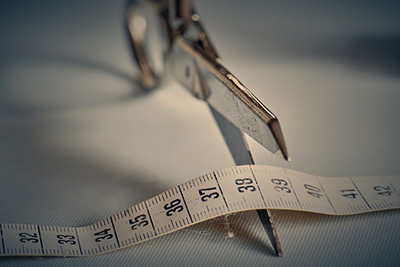Contents
The protrusion of the stomach through the diaphragm and into the chest cavity is treated by hiatal hernia surgery. Although weight loss after hiatal hernia surgery is not the main objective, some people report weight fluctuations afterward.
Why Might Weight Loss Occur?

- Reduced Stomach Capacity: The adequate volume of the stomach may be decreased depending on the kind and degree of the operation. This may reduce calorie consumption by limiting the quantity of food eaten in a single sitting. Therefore, it results in weight loss after hiatal hernia surgery.
- Dietary Restrictions: Patients are often put on a special diet after surgery, which gradually moves from liquids to soft foods and then back to a more normal diet. This gradual change usually results in a brief reduction in calorie consumption and weight loss after hiatal hernia surgery.
- Increased Satiation: Even after switching to a conventional diet, some patients feel satisfied or fuller after eating, which leads to weight loss after hiatal hernia surgery.
- Post-operative Nausea or Discomfort: Some people may feel nauseous, have a diminished appetite, or have gastrointestinal pain, all of which might make them feel less hungry and, therefore, experience weight loss after hiatal hernia surgery.
- Enhanced Health Consciousness: Surgery may sometimes make patients more health-conscious, leading them to choose better foods or increase their physical activity, which will eventually lead to weight loss after hiatal hernia surgery.
Tips for Successful Weight Loss After Hiatal Hernia Surgery

- Consult a Dietitian: To promote weight loss after hiatal hernia surgery without hindering recovery, a licensed dietitian may provide individualized advice on calorie intake, portion management, and nutritional balance.
- Stay Hydrated: Water may promote digestion and reduce feelings of satiety. Small sips of liquid should be consumed throughout the day, particularly at first while the stomach is mending.
- Prioritize Protein: Protein may enhance muscle maintenance, increase fullness sensations, and help tissue healing after surgery.
- Introduce Fiber Gradually: Fiber may improve intestinal health and make you feel full. To prevent gastrointestinal pain, it’s crucial to gradually reintroduce fiber following hiatal hernia surgery.
- Monitor Portion Sizes: Smaller, more frequent meals might help you avoid overeating and ease the strain on your stomach as it heals.
- Stay Active: Exercise is essential for any weight reduction strategy. Begin with easy workouts like walking, then add strenuous ones as you heal.
- Listen to Your Body: Take a step back and speak with your doctor if you have any discomfort after eating particular meals, including pain, feeling too full, or any other discomfort.
- Avoid Empty-Calorie Foods: Instead of consuming empty calories from meals like sugary beverages or snacks, emphasize nutrient-dense foods that provide key vitamins and minerals.
The Psychological Aspects of Weight Loss After Hiatal Hernia Surgery
In addition to any potential physical changes brought on by hiatal hernia surgery, psychological and emotional factors are also very important for weight reduction and general post-operative well-being.
Emotional Responses to Surgery

- Anxiety: A traumatic experience like surgery may sometimes make people less hungry. This decrease in appetite may have further effects on weight loss following surgery.
- Depression: After surgery, some patients may suffer emotions of melancholy or despair, which might change how they eat. It’s essential to get help if you continue to experience depressive symptoms.
- Relief and Motivation: Relief may result from a hiatal hernia that has been successfully repaired. This happy emotional reaction may inspire some people to better care of their health, particularly by adopting a balanced diet and exercise routine.
Psychological Tips for Post-Surgery Weight Management

- Mindful Eating: Being aware and present throughout meals may help you recognize hunger and fullness signals. This may help you avoid overeating and improve your awareness of your body’s demands.
- Setting Realistic Expectations: Recognize that weight reduction after surgery may not be linear. Although there may be ups and downs, exercising patience and consistency in your good routines is essential.
- Seek Support: Participating in therapy or joining a support group might be beneficial. Sharing your story with others who have gone through similar things may provide understanding, inspiration, and friendship.
- Avoid Emotional Eating: Distinguish between eating to satisfy hunger and dealing with emotions. When you feel overwhelmed, nervous, or depressed, try deep breathing exercises, meditation, or chatting with a friend instead of grabbing for comfort foods.
The Role of Medications

Following surgery, several drugs that patients may be given might impair appetite and metabolism, further affecting weight. It is essential to:
- Discuss Medications with Your Doctor: If you think a particular drug impacts your weight or appetite, discuss it with your healthcare practitioner.
- Stay Informed: Recognize any possible adverse effects from your medications. With this information, you may prepare for and handle any weight-related issues.
Long-Term Considerations
While weight loss after hiatal hernia surgery may occur immediately, it’s essential to consider the prolonged effects. The key is to uphold a healthy lifestyle, communicate with medical specialists often, and pay attention to bodily and emotional requirements. By using the proper techniques, patients may make the most of their recovery time and improve their general health and ability to control their weight.
Weight reduction after hiatal hernia surgery may be brought on by several factors, such as altered nutrition following surgery or a smaller stomach. Understanding the causes and taking a planned approach may make a big difference for individuals wishing to use this time to lose weight or those who want to maintain their present weight. Always talk to your doctor before making substantial dietary or activity changes after surgery.
DISCLAIMER: All content on this website is presented solely for educational and informational objectives. Do not rely on the information provided as a replacement for advice, diagnosis, or treatment from a qualified medical expert. If you are pregnant, nursing, or have any preexisting medical concerns, talk to your doctor before using any herbal or natural medicines.
References
- Annals of Laparoscopic and Endoscopic Surgery (ALES): https://ales.amegroups.org/article/view/6483/html
- Arizona Premier Surgery: https://arizonapremiersurgery.com/2023/08/26/weight-loss-after-hiatal-hernia-surgery-what-patients-need-to-know/
